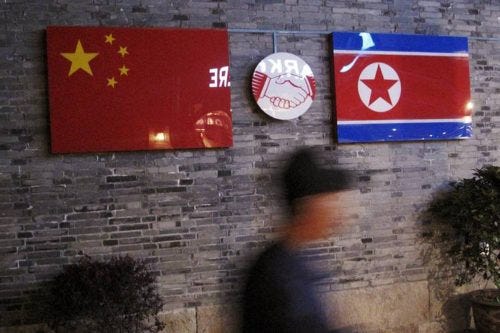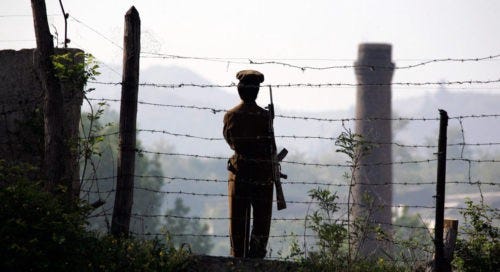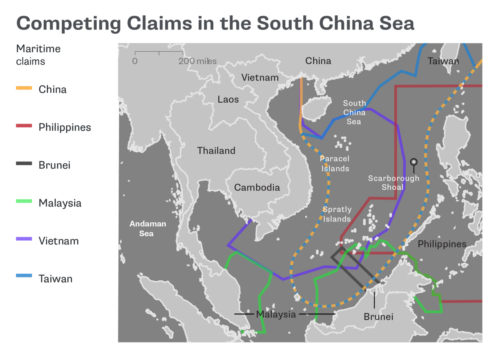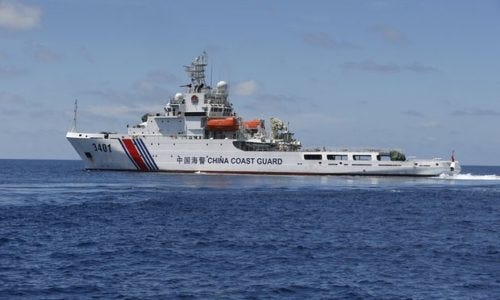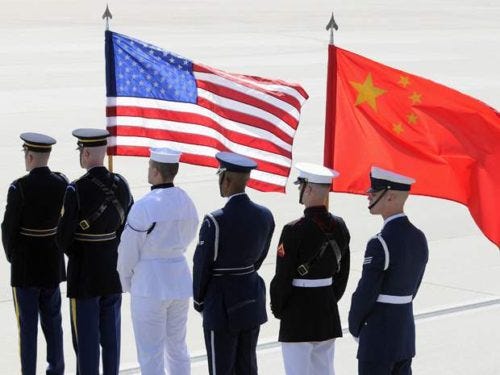China Faces Challenges: North Korea and the South China Sea
China faces a difficult month as it tries to control multiple potential diplomatic and military problems on its borders.
The Chinese aren’t happy with their client state North Korea. They’re facing resistance to their plans for maritime dominance in the South China Sea from Indonesia. And the US, always an adversary in Asia, will be next door in Japan for the G-7 in May and is watching developments in the region closely.
[T]he North Korean government’s actions have been a problem for China in recent weeks. North Korean media began the month of April with threats to attack South Korea and the US with its nuclear weapons. The Chinese were not amused.
Chinese media:
“The reality is that this blustering only reveals North Korea’s weakness,” Xiakedao said. “While North Korea sometimes plays its strongest cards, such as nuclear weapons tests, it has no intention of starting a war. All it means to do is to raise the level of the threat to increase its leverage in future negotiations.”
“In North Korea, opposition to the US is regarded as the source of the national power, and ratcheting up the external threat through this kind of hardline attitude also enables ideological unity in the public before the Korean Workers’ Party Congress, which will be held soon. This is a method of strengthening internal unity,” Xiakedao also said.
In other words, China told the world through its state media apparatus, don’t believe a word they say. It’s all bluster. The paternalistic language sends the message that China will manage its client state.
[N]orth Korea responded by implying China was a pawn of the West and by accelerating its weapons tests. The country tried and failed to launch a ballistic missile test on Friday, April 15.
The isolated nation followed the test up by making clear that it plans to conduct its fifth nuclear test ahead of its Seventh Party Congress in May- the same month that US President Barack Obama will be in nearby Japan for the G-7 meeting.
China has deployed its military to the North Korean border in response to this possibility. This is not the first time China has taken action like this in response to North Korean provocations, but tensions between the two countries being what they are, the Chinese government’s early April warning that the Korean peninsula is a major global security threat is seeming more and more prophetic.
[P]art of the motivation for this smack down of its patron state might be the Chinese preoccupation with its maritime claims in the South China Sea. The Asian superpower can’t be dealing with cleaning up the mess created by its eastern neighbor while it tries to navigate the complicated maritime politics of Southeastern Asia.
As the above image shows, China’s claims on territory in the busy shipping lanes and strategic territories in the sea are being stymied by the other countries bordering its waters. China’s claims interrupt those of the Philippines, Brunei, Malaysia, Vietnam, and Taiwan.
Enter Indonesia.
The massive nation, made up of a chain of islands stretching across three time zones, has largely stayed out of the conflict to its north. It hasn’t made claims on territory in the South China Sea- but that may be changing.
[C]hina’s southernmost claim enters into waters Indonesia believes belong to Indonesia. Indonesia made a statement on April 5 by using explosives to destroy a number of foreign owned boats as an example of what may happen if countries continue to enter its waters.
Though none of the boats were Chinese, the incident stemmed from a claim by Indonesia that China had been poaching fish in Indonesia’s exclusive economic zone- within 200 miles of the country’s coastline.
Now, as a further escalation, Indonesia is claiming oil exploration rights on areas of its waters that abut China’s South China Sea claims.
State-controlled energy company Pertamina plans to explore for oil and gas in areas close to Indonesia’s maritime border in the South China Sea to assert the country’s territorial rights, the upstream director of the state-owned company said Tuesday.
The plan depends on military support from the government, Petramina added:
Alam did not spell out Pertamina’s plans for development in the South China Sea, but asked about security, he said: “Of course, we have to have support from the military.” He did not elaborate on what role the military might play.
Facing Indonesia as well as the other five countries it is squabbling with in the region cannot be helpful to China’s maritime plans.
[T]he US is also a factor in the South China Sea. The US is deploying aircraft and military personnel to the Philippines in advance of the Obama administration’s “pivot” to the region.
The deployment takes on added significance in light of the Philippines’ counter-claim to China in the South China Sea. Secretary of State Ashton Carter cancelled a planned trip to Beijing as a response to the heightened tensions in the maritime region.
An increased US presence in the region will not de-escalate tensions in the sea.
[T]hus, Obama’s planned visit to the region in May for the G-7 summit will come at a particularly difficult time for the US and China relationship.
North Korea will respond to Obama’s presence in Japan with- at the least- bellicose rhetoric that China will be expected to deal with.
The South China Sea will be a flashpoint of conflict between the two superpowers as they position their militaries ever closer to one another.
It all adds up to a complicated geopolitical situation for the Asian superpower. China has a lot of balls in the air and keeping them floating will take finesse.
[spacer height=”20px”]

